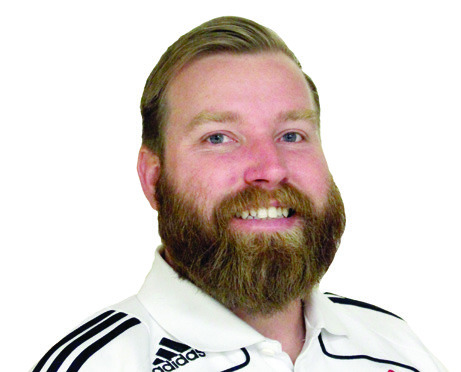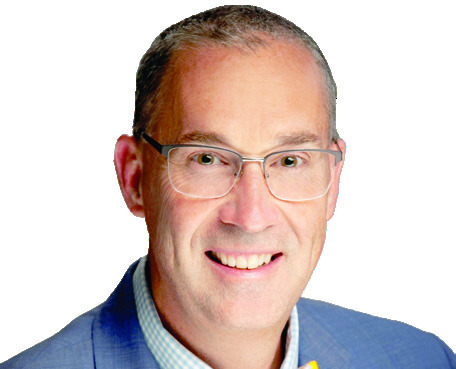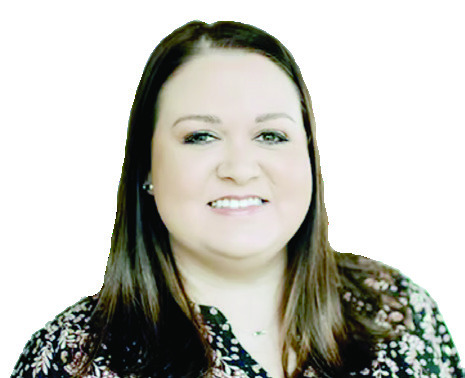While rummaging through my cluttered basement in preparation for an upcoming garage sale, a weighty realization washed over me.
What was I planning to do with all of this stuff?
It was a wake up reminder of how easily possessions accumulate in our lives. Piles of forgotten belongings, relics of hobbies once pursued and trends long past, have amassed in the corners of my home, hidden in dusty boxes and overlooked corners.
Each item carries with it a story, a memory, an aspiration, yet the sheer volume of these things begs the question: How has so much stuff come to find a home under my roof? Why is our stuff so important to us anyway? Does the tendency to hold on to our possessions begin in childhood?
Picture this scenario, which we all have witnessed in one form or another. Jackson and Olivia, both toddlers, are locked in an epic battle over a bright red toy fire truck. Jackson holds onto it like his life depends on it, and Olivia unleashes her best secret weapon — the pouty lip.
They are like pint-sized warriors fighting for treasure! Eventually, with a little help from the adults in the room, they figure out how to share, and that shiny fire truck becomes a symbol of their newfound teamwork.
In the adult realm, it’s not toys, but resources, that often become the objects of contention. Time, money and possessions take center stage, and the struggle to share persists.
In this case, the toys have transformed into assets. As adults, our valuable commodities are things that individuals may hesitate to part with. There can be a tendency for some of us to be inwardly focused and more materialistic.
We can become inclined to turn a blind eye to those around us who could use some assistance. Reality is the existence of a culture where those living in prosperity are coexisting with many who are struggling with poverty.
A lot of us lead incredibly busy lives. Balancing work, family responsibilities, and personal commitments can leave little time for volunteer work or community involvement.
The demands of daily responsibilities can create a perception that there simply isn’t enough time to spare for acts of kindness. A jam-packed schedule readily builds a wall against sharing one’s time investing in others.
Many people genuinely care about making a difference in their community, yet they grapple with the act of sharing. It’s a paradox rooted in our human nature. Our instinct is to protect what we have and to hold on tightly to resources.
That inclination can hinder willingness to get involved in new personal exchanges especially when they fall outside our comfort zone. Just as the child believes that sharing the cherished toy will diminish its value, adults may fear that giving away their time or possessions will somehow lessen their own well-being.
It’s a psychological barrier that needs to be overcome similar to Jackson’s reluctance to part with the red fire truck.
“For where your treasure is, there your heart will be also” (Matthew 6:21), holds a profound truth that resonates not only in matters of faith but also in our everyday lives.
It speaks to the idea that our priorities and values are reflected in how we allocate our time, resources, attention and energy.
When we sacrificially share our time, lend a helping hand, or offer our resources to those in need, we align our hearts with a higher purpose.
This selflessness not only enriches the lives of others but also brings a deep sense of fulfillment and authenticity to our own lives.
In this way, we discover that the true treasures in life are not measured by what we collect for ourselves but by the love and compassion we extend to others.
The greatest treasure of all is the ability to share ourselves with generosity and authenticity, creating a positive ripple effect that touches the lives of those we help and brings a profound sense of purpose to our own journey.
The true essence of compassion and humanity is discovered when we overcome an inclination to hoard and instead extend a hand to help those less fortunate.
Our own prosperity gains real meaning when we share it with others.
Janet Mills is the director of Cassville Pantry, located at 800 W. 10th St. in Cassville. She may be reached at cassvillepantry@gmail. com or 417-846-7871.




